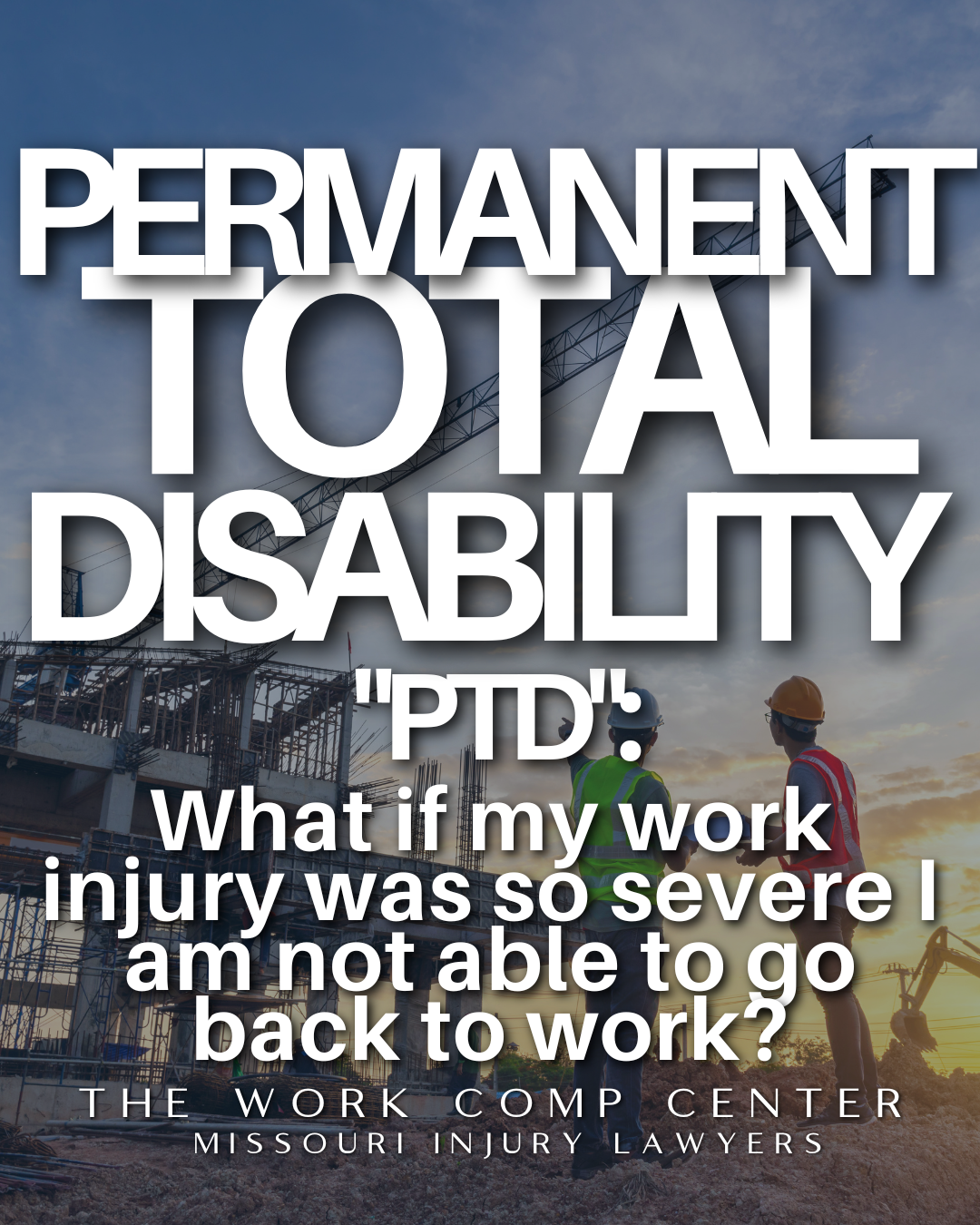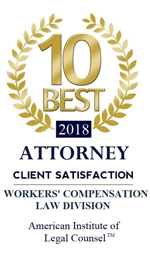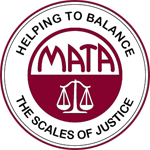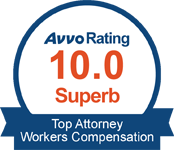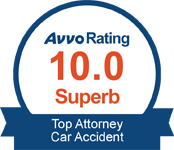Permanent Total Disability “PTD”: What if my work injury was so severe I am not able to go back to work?
For Comprehensive information, be sure to check out our previous posts:
What is Missouri Workers Compensation Law?
The Medical Treatment Benefits in Missouri’s Workers’ Compensation Law
Temporary Total Disability (“TTD”) Benefits
Temporary Partial Disability (“TPD”)
Permanent Partial Disability “PPD” Claim
The Missouri Workers’ Compensation law accounts for injuries that eliminate workers’ from returning to work very differently from how it accounts for less severe injuries where they are reasonable able to return to work after medical treatment. To try and state it simply, if your work injury makes it to where it is no longer reasonable to expect any employer in the open labor market to hire you for a full-time position without accommodations that others in your position would not receive, Missouri Workers’ Compensation Law would say you are permanently and totally disabled (“PTD”).
Depending on your age and income level at the time of your injury, these PTD cases can be worth hundreds of thousands, if not millions, of dollars.
So, in most of these cases, you will face a fight that is far fiercer than your more ordinary, [typically] less valuable, permanent partial disability (“PPD”) Missouri Workers’ Compensation Claims.
To prove PTD, it will not be enough that you feel you cannot return to work. And, it will not be enough for you to show only that you cannot return to the job you had before you got injured. So, how do you prove it is no longer reasonable to expect any employer to hire you for full-time work without making accommodations for you? You need evidence to establish your work injury prevents you from competing in the open labor market. So, what evidence will you need?
- Medical Restrictions – Evidence where a doctor defines what your work injury and any preexisting injuries and/or conditions prevent you from doing physically, mentally, emotionally, and/or socially that you might be expect to be able to do or tolerate at a workplace in the ordinary course.
- Vocational Evaluation of Restrictions – Evidence where an expert in job placement (employability) evaluates whether your medical restrictions prevent you from being hired for jobs in the open labor market that you might otherwise qualify for in the open labor market.
Almost every job in America has minimum requirements that all applicants must meet to be considered for the position. For example, some jobs require whomever is hired to be able to lift greater than 50 lbs. and stand or walk and climb frequently throughout each work day. Other job titles might require a certain education level or level of technical training and/or type of certification. Other job titles might require computer skills and an ability to type a certain number of words per minute. These are only a few examples. skills, some all of those things, etc. As long as these baseline requirements are applied equally to all applicants, Employers are in most cases allowed to have them.
Ultimately, in my opinion, your abilities (or, lack thereof) and background combine to form your vocational profile. The same injury that eliminates someone of one age, education, work history, and appearance PTD might not render a another with a different vocational profile PTD. Every case is extremely fact specific, and this area of the law is terribly complicated.
The vocational experts, in their ordinary practice, assist individuals in finding employment or training or educational opportunities that would allow them to find employment. Vocational experts can evaluate your vocational profile and medical restrictions to conclude whether you remain employable despite your limitations following your work injury.
That said, the vocational experts are at the mercy of the medical evidence, as they do not get to decide what your limitations and restrictions are. Remember, that part is/was up to the doctors. Like anything else, one doctors opinion might differ from another as to what you are capable (or, incapable) of doing. As such, a vocational expert might conclude that you are PTD when they consider one doctor’s restrictions, but that same expert might conclude that a different physician’s restrictions would not render you PTD.
Even after you establish PTD, it the question remains whether the Employer and its WC Insurer or Missouri’s Second Injury Fund is liable for payment of a lifetime of benefits to you. This blog does not dive into that additional analysis.
If you think your work injury has, or even might, make it really difficult to return to work, it costs you nothing to set up a consultation with the attorneys at McDuffey & Medcalf, LLC. Some of our largest workers’ compensation settlements and trial victories come in these PTD cases. Our extensive experience litigating Missouri Workers’ Compensation PTD Claims has led to huge settlements and life changing trial results. If you have any doubt, call and find out for free if we can add value, and how we can do so, where you cannot return to work after your work injury.
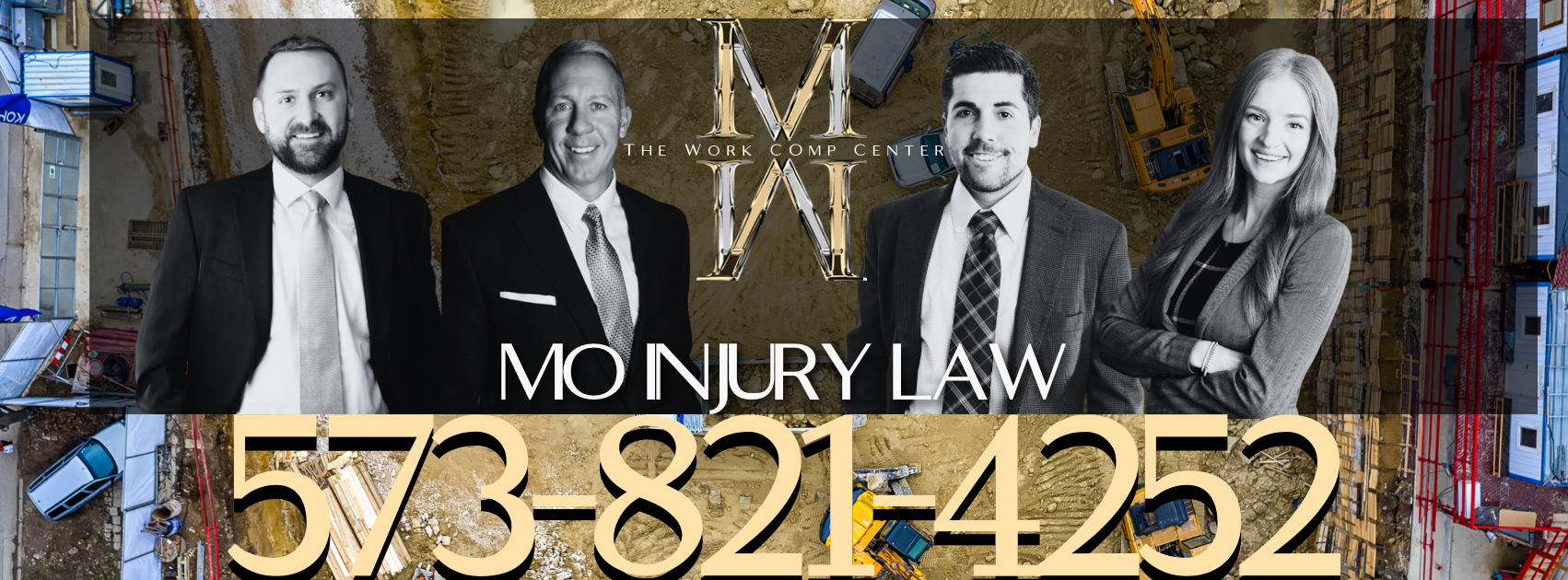
FOR MORE INFORMATION OR TO SEE THE LAWYERS AT THE WORK COMP CENTER CAN HELP YOU WITH YOUR WORKERS’ COMPENSATION CASE:
CALL 573-821-4252 TO SCHEDULE A FREE CONSULT
EMAIL: br**@*********aw.com
OR SUBMIT YOUR INFORMATION HERE FOR A FREE CASE EVALUATION.
